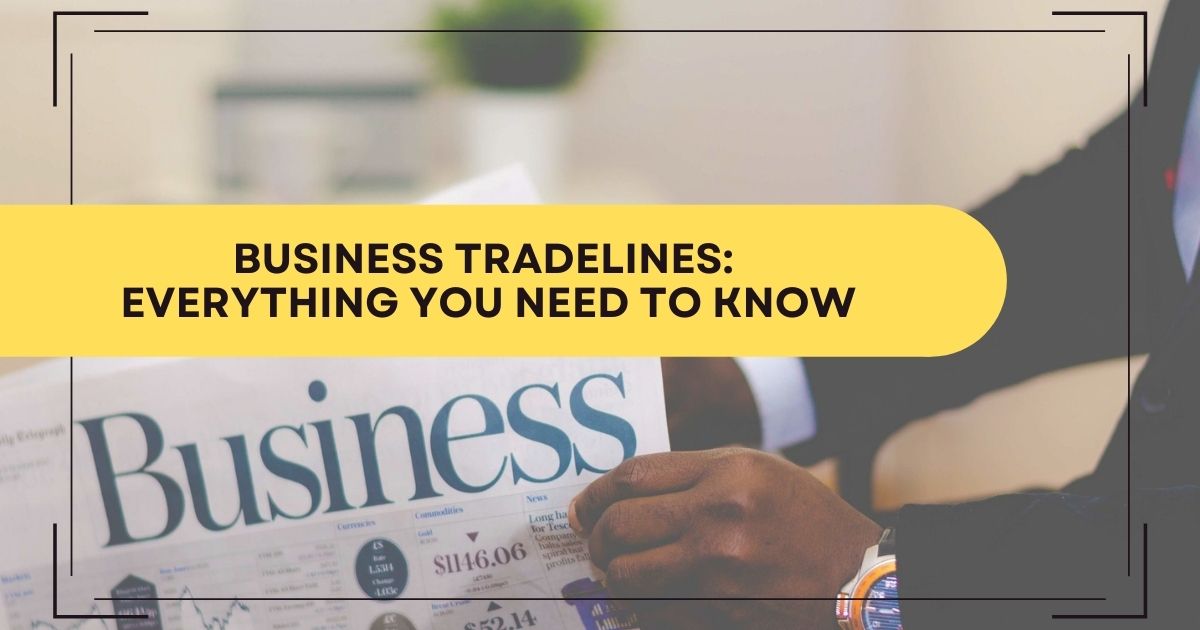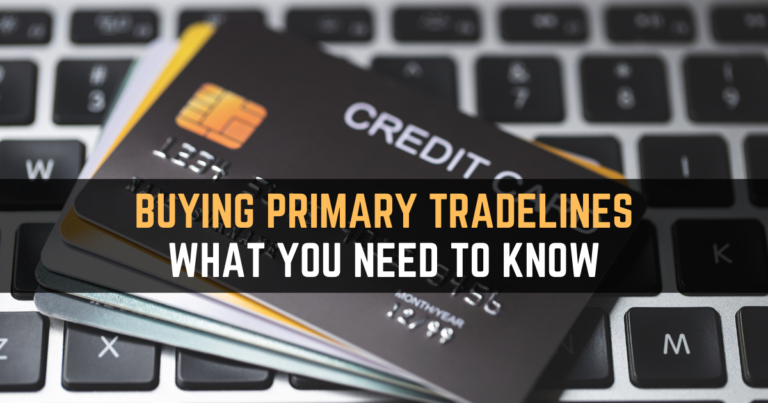Business Tradelines: Everything You Need To Know
Business tradelines are credit lines granted to businesses by their vendors. Businesses commonly use them to obtain products or services in exchange for a promise to pay later. Businesses may have many trade lines with various vendors. Also, they often arrange to pay 30, 60, or 90 days after receiving the products and services.
Businesses can find it problematic to understand the meanings of trader terms since their meanings may not be widely understood. As a result, it can lead to communication problems. And some individuals use terminology in the wrong way. In that case, this may imply things they do not truly mean. As you may expect, this can lead to a lot of uncertainty.
What is A Business Tradeline?

A business tradeline is a credit account established between a company and a vendor. Typically, a supplier or vendor may offer the business payment terms such as net-30. It indicates the company can pay for products over the course of 30 days rather than upfront. Net-30 accounts can enhance a company’s cash flow since items or services do not have to be paid for in advance.
As the title implies, business tradelines are accounts that record your payments to business credit reporting agencies or CRAs. This might include vendor accounts, business credit cards, or a few other items. Typically, the word relates to vendor accounts.
You purchase items from these sellers, and they allow you to pay them later. This is referred to as net terms. It differs from revolving credit in which you must pay the entire sum by a specific date. That is, they will bill you for the items or services you purchase from them. But with the idea that you will pay them within a particular time frame.
Why Are Tradelines Important?
Business tradelines are useful since they may assist other companies and organizations in determining your company’s creditworthiness.
Your business credit reports may include summaries of your company’s payment history for invoices and trade credit accounts. They also frequently include information on the firm, such as its age, industry, if there are any outstanding liens or judgments, and information about the owners.
When you apply for a loan, line of credit, lease, insurance, or trade credit, your business’s credit reports may be reviewed. Similarly, while attempting to obtain a contract with a large firm or government body. Many business credit reports include credit scores or creditworthiness ratings, and your tradelines can have a direct influence on them.
Are Business Tradelines Legal?
Absolutely. However, there are certain dubious activities linked with “seasoned tradelines.” Certain organizations (including some credit restoration firms) offer to provide seasoned tradelines in order to assist business owners in fast establishing credit. This is how it works:
A firm will form a corporation and open accounts in its name with the intention of “flipping” it. It will then sell this “shelf corporation” to another company with the promise of instant access to thousands of dollars in credit lines. But, in most cases, this does not turn out to be the case.
Things you should know about business tradelines.
When it comes to preparing your firm for finance, business tradelines may be a beneficial tool. To put it succinctly:
Not All Companies Tradelines should be reported to a business credit bureau
Obtaining a business loan, line of credit, or launching a trade credit account can all aid in the development of business credit, but only if the tradeline appears on your company credit reports.
Some businesses may not want to spend the time or money necessary to develop a reporting system and transmit updates to credit agencies, and businesses are not compelled to report your accounts or payments.
Be Wary of Purchasing Tradelines or Shelf Companies
If you’re searching for a quick way to establish your company credit, you’ll quickly discover that there are organizations willing to offer you tradelines. These are frequently “seasoned” tradelines, implying that they have been in operation for some time. In most cases, the seller will add your company to the tradeline as an approved user. It may also try to offer you a shelf business, which is a firm founded on paper and then sits on a shelf until it is sold.
The concept is that you may acquire a firm that has been in operation for a long time and has established credit. The company may therefore use its “history” to qualify for contracts and greater funding limitations.
You Wish to Have More Than One Tradeline
You want to have more than one business tradeline for the credit report, just as having a tradeline without information isn’t especially instructive.
Having many tradelines with a lengthy history of on-time payments might be extremely beneficial when it comes to creating solid company credit. It might even be a requirement for some business credit scores.

Pros:
- The bank approves loans more easily
- Can help with cash flow
- Frequently offered to both new and existing enterprises
- On-time payments can aid in the development of a company’s credit score.
Cons:
- There may be some credit limitations at first.
- You might be able to purchase from only single vendor/supplier.
- Fees may be levied against new enterprises.
- You might lose a possible discount in exchange for speedier payment.
How to Get Business Tradelines?
Because not all lenders and vendors report to all major business credit reporting agencies, establishing business credit can be a difficult process. For example, information about a supplier account may appear on your Dun & Bradstreet credit report. But information about company credit cards is frequently shared with lenders through the Small Business Financial Exchange.
Simply asking is a fantastic strategy to create tradelines. Inquire with your suppliers or vendors about credit or payment arrangements. Most payday lenders do not demand strong credit and will seldom check a FICO score.
If you don’t already conduct business with suppliers or vendors who report to commercial credit agencies, you can look for vendors who do. Purchase things for your company
FAQs
Can you buy business tradelines?
Businesses can purchase business tradelines online. If you do, the seller may add your firm to an established tradeline as an authorized user or sell you a shelf company with established credit. This is not something we recommend.
Is purchasing a business tradeline illegal?
Buying a business tradeline isn’t illegal, but it’s also not a smart idea. You may commit fraud if you misrepresent your company’s credit history on a bank loan application. You may also jeopardize your connection with creditors and credit reporting agencies.
Conclusion
Slow and steady wins the race, and the same is true for establishing company credit. Avoid adopting shortcuts such as purchasing tradelines and instead invest time and effort in learning how traditional credit reporting companies operate. Our opinion on buying tradelines to enhance business credit is that the danger of raising red flags with lenders is too great. A corporate credit score of 80 or above is within reach with time and constant work.
Keep a watch on your reports after you have business tradelines reporting to business CRAs. As a result, they will most likely not disclose the names of the firms reporting but rather the categories of companies. This implies you must maintain track of your accounts and match them, so you know who is reporting what. You should also keep an eye out for errors and have them repaired. We can assist you in keeping track of your company credit on a regular basis.






